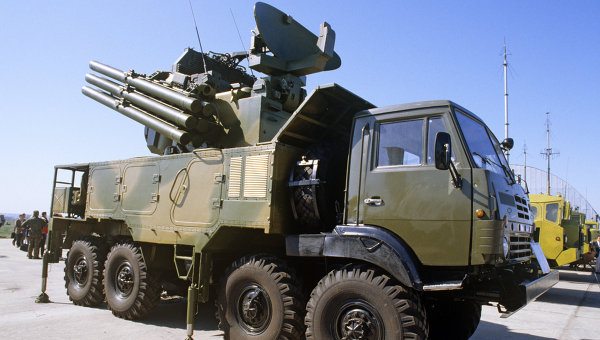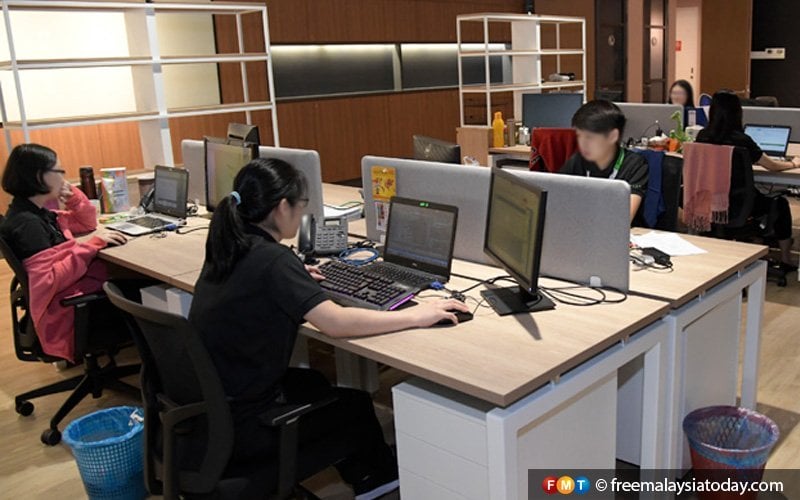
Published by Malay Mail. New Straits Times, The Asean Post & The Malaysian Reserve, image from Defence Talk.
As China continues its incursions into Malaysia’s Exclusive Economic Zone (EEZ) in the South China Sea, there is a need for the latter to display firm resolve by leaving no doubt that we are prepared to use force in the extreme of circumstances, given the recurrent blatant and flagrant violations of our territorial sovereignty and integrity by China.
At the same time, we must continue to pursue diplomatic recourse and channels — both bilateral as well as multilateral — to try to find an amicable, lasting and sustainable solution to the perennial issue.
Malaysia ought to maintain that real-world and existential tension of being both a friend and “enemy” of China (frenemy) in so far as the South China Sea is concerned is rooted in the preservation of our national interests as the overriding factor.
To do that, we should enhance our maritime and air defence security strategy and infrastructure. Piece-meal or ad hoc low-level responses is no longer adequate.
At the same time, we should increase the intensity of our diplomatic engagements, both overt and covert, set within the framework of the twin-track approaches — bilateral and multilateral.
According to the Auditor-General’s Report released on July 14, China encroached into Malaysian waters 89 times between 2016 and 2019.
“The China Coast Guard (CCG) intruded into Malaysian waters 72 times while the remaining were by the People’s Liberation Army Navy (PLAN). The reason for the CCG and PLAN’s existence was to demonstrate China’s presence in regard to its South China Sea claims, especially in the Beting Patinggi Ali (BPA) area [in Sarawak waters],” said the report.
The report was released against the backdrop of US’ hardened position against China’s presence in the South China Sea. Accompanying this has also been the public spat between the sitting Foreign Minister, Hishamuddin Hussein Onn with Anifah Aman who held the same post from 2009-2018.
In his prepared statement, Anifah said, “[if] Malaysia’s position on the South China Sea has not changed, what prevents the Minister from openly and categorically [registering] our displeasure on the activities of the Chinese survey vessel Haiyang Dizhi 8 and its flotilla in Malaysia’s maritime areas in April and May ?”
Apart from the BPA, the latest and farthest extent of Chinese intrusion so far into our waters is the area part of Malaysia’s extended continental shelf near the Luconia Shoals where a Chinese survey vessel was accompanied by the CCG and fishing militia from April to May this year.
Analysts are of the view Malaysia is now more dependent on China for trade as a result of the economic impact of Covid-19. They are also quick to point out the Foreign Minister’s tactful and quiet diplomacy on the issue is not a tacit kowtowing or submission to China’s claim under undue pressure, economic or military.
Now, Hishamuddin’s statement isn’t surprising. After all, it should be recalled he was the then Defence Minister who played a pivotal role in forging and fostering closer defence and security ties and cooperation with China when Najib Razak was the Prime Minister.
To this it could be added the statement by former diplomat and Putrajaya insider, Dennis Ignatius who was reported to have said that under Najib, “Wisma Putra even abandoned the usual practice of protesting every time an incursion occurred”.
Be that as it may, there is a need to redress whatever policy gap there is in terms of both diplomacy and security which calls for their alignment and coordination.
Towards that end, left without any other realistic and viable option at least for now and in light of the lack of satisfactory outcomes of on-going bilateral as well as multilateral talks (twin-track approach), Malaysia should, among others:
Suspend the practice of giving port access to Chinese warships;
Call for China to withhold and restrain from sending its military assets to accompany civilian vessels in the EEZ of claimant countries;
Implement the policy of monitoring and supervising civilian activities of Chinese vessels sent for survey, scientific, research and marine purposes;
Stop all Chinese fishing activities; and
Take steps to forge and foster stronger defence and security cooperation with selected Asean member-states (“core”) namely Singapore, Brunei, Indonesia, the Philippines and Vietnam to counter China’s presence.
At the same time, these member-states should ratify a common or joint-defence and security pact revolving around maritime and air warfare to signal our determination to stand up to the aggressive behaviour of China.
In other words, Malaysia has no choice but to depart from the practice of neutrality and appeasement which has not worked well in its favour so far; and
Commence the practice of note verbal or third party note directly to China to state our objection and protest at incursions instead of through adjudicating bodies such as the UN Commission on the Limits of the Continental Shelf even if this risks diplomatic awkwardness and a fallout. This in addition to the practice of informally engaging the diplomatic counterparts of China.
A new genre of international relations language should be employed tempered to be sure by tactful language, e.g. “Malaysia views the practical annexation of ( ) by China as infringing on our sovereign right to resources within the EEZ”. This form of diplomatic escalation conditioned as it is by specific incidents should then be resolved accordingly under proposals for joint-development or temporary suspension of the relevant activities by both parties.
To reiterate, unfortunately, Malaysia has no choice but beef up its position for the sake of its territorial sovereignty and integrity. The price of not doing that would perhaps, paradoxically, sow the seeds for a full-blown eruption in the South China Sea — as a major flashpoint serving one of the busiest international sea lanes — on a scale analogous to Covid-19.
Jason Loh Seong Wei is Head of Social, Law and Human Rights at EMIR Research, an independent think tank focused on strategic policy recommendations based on rigorous research.
Diterbitkan oleh Berita Harian.
Ketika China meneruskan pencerobohan terhadap Zon Ekonomi Eksklusif (ZEE) Malaysia di Laut China Selatan, kita perlu menunjukkan ketegasan tekad memandangkan berulang kali berlaku pelanggaran kedaulatan dan integriti wilayah secara jelas oleh China.
Pada masa sama, kita mesti terus berusaha melalui saluran diplomatik dua hala mahupun pelbagai hala untuk mendapatkan penyelesaian baik, berkekalan dan mampan kepada masalah berterusan ini.
Malaysia harus menerima hakikat ketegangan yang wujud akibat menjadi ‘sahabat dan musuh’ China (frenemy) dalam menangani isu Laut China Selatan yang pada asasnya bersendikan kepentingan nasional kita sebagai faktor utama.
Bagi tujuan itu, kita harus meningkatkan strategi dan infrastruktur keselamatan pertahanan maritim serta udara kita. Tindak balas tidak terancang dan sementara tidak lagi memadai.
Menurut Laporan Ketua Audit Negara dikeluarkan pada 14 Julai, China mencerobohi perairan Malaysia 89 kali antara 2016 dan 2019.
“Pengawal Pantai China (CCG) mencerobohi perairan Malaysia 72 kali sementara selebihnya oleh Tentera Laut Pembebasan Rakyat.
“Pencerobohan itu bertujuan menonjolkan kehadiran China berkenaan tuntutannya di Laut China Selatan, terutama di Beting Patinggi Ali (BPA) di perairan Sarawak,” kata laporan itu.
Laporan itu dikeluarkan dalam suasana pendirian Amerika Syarikat (AS) yang semakin tegar terhadap kehadiran China di Laut China Selatan disusuli berbalas kenyataan antara Menteri Luar, Datuk Seri Hishammuddin Hussein dengan bekas Menteri Luar, Datuk Seri Anifah Aman.
Selain BPA, pencerobohan China terbaru dalam perairan kita adalah di kawasan bahagian pelantar benua Malaysia berdekatan Luconia Shoals dengan kapal tinjauan China disertai CCG dan kumpulan milisi nelayan dari April hingga Mei lalu.
Penganalisis berpendapat Malaysia kini lebih bergantung pada China untuk perdagangan akibat kesan ekonomi COVID-19. Namun, mereka juga menyifatkan diplomasi Menteri Luar yang dibuat dengan diam-diam dan penuh hikmah itu bukan kerana tekanan untuk tunduk kepada tuntutan China sama ada ekonomi atau ketenteraan.
Kenyataan Hishammuddin sebenarnya tidak mengejutkan. Harus diingatkan beliau ialah bekas Menteri Pertahanan yang memainkan peranan penting dalam menjalin dan mengeratkan hubungan pertahanan dan keselamatan serta kerjasama dengan China ketika Datuk Seri Najib Razak menjadi Perdana Menteri.
Bagaimanapun, terdapat keperluan merapatkan jurang dasar dari segi diplomasi dan keselamatan yang memerlukan penyelarasan baik.
Menuju ke arah itu, Malaysia seharusnya antara lain menggantungkan amalan memberi akses pelabuhan kepada kapal perang China dan menyeru agar China tidak mengirim aset ketenteraannya menemani kapal awam di ZEE negara yang menuntut.
Begitu juga, melaksanakan dasar memantau dan mengawasi kegiatan kapal China yang dihantar untuk tujuan tinjauan, saintifik, penyelidikan dan maritim serta menghentikan semua aktiviti perikanan nelayan China.
Di samping itu, Malaysia perlu menjalin dan mengeratkan kerjasama pertahanan dan keselamatan lebih kuat dengan negara anggota ASEAN terpilih, iaitu Singapura, Brunei, Indonesia, Filipina dan Vietnam untuk menyekat kehadiran kapal China.
Pada masa sama, negara anggota ini harus mengesahkan perjanjian pertahanan bersama dan keselamatan untuk menandakan tekad menentang tingkah laku agresif China.
Dengan kata lain, Malaysia tidak mempunyai pilihan, selain meninggalkan amalan berkecuali dan bertolak ansur yang selama ini tidak menguntungkan.
Malaysia juga perlu memulakan protokol nota lisan atau nota pihak ketiga secara langsung kepada China bagi menyatakan bantahan dan protes terhadap pencerobohan, bukan melalui badan pengadil seperti Suruhanjaya Pertubuhan Bangsa-Bangsa Bersatu (PBB) mengenai Batasan Pelantar Benua walaupun berisiko menimbulkan kejanggalan dan kegeseran diplomatik.
Menggunakan bahasa baharu tegas dalam hubungan antarabangsa diimbangi dengan bahasa lebih sederhana, misalnya: “Malaysia memandang rampasan wilayah oleh China sebagai melanggar hak kedaulatan kita ke atas sumber dalam ZEE.”
Malaysia tiada pilihan selain memperkasakan kedudukan demi kedaulatan dan integriti wilayah.
Jason Loh Seong Wei merupakan Ketua Bahagian Sosial, Perundangan dan Hak Asasi di EMIR Research, sebuah badan pemikir bebas yang berfokuskan kepada pencernaan saranan-saranan dasar strategik berteraskan penyelidikan yang terperinci, konsisten dan menyeluruh.

